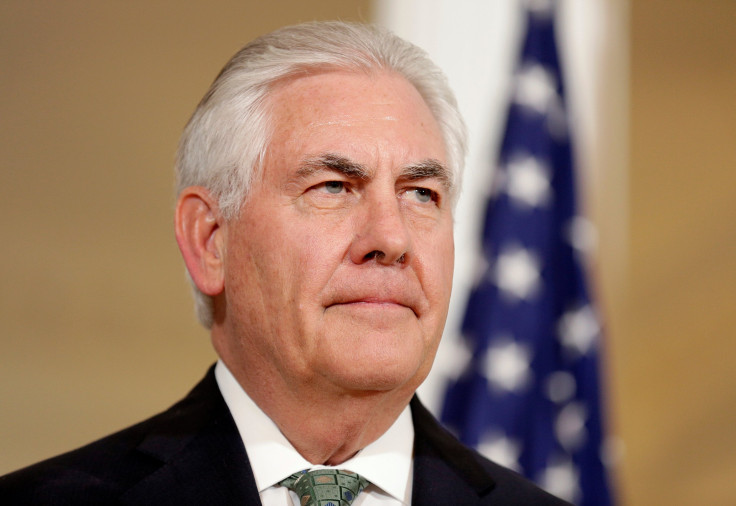Climate Change News: Tillerson Questions Man's Ability To Curb Global Warming

KEY POINTS
- Tillerson says man's ability to curb global warming is questionable but the problem is real
- 2019 was second hottest year on record, behind only 2016
- He cautioned against tinkering with policies that have made the U.S. a crude oil exporter
Former Exxon Mobil CEO and Secretary of State Rex Tillerson on Tuesday questioned how much humans actually can influence climate change.
At the Argus Americas Crude Summit in Houston, Tillerson said human ability to intervene in global warming is “still an open question.”
“Our belief in the ability to influence it is based upon some very, very complicated climate models that have very wide outcomes,” he said, adding he considers climate change a “very serious matter,” and research on limiting it should continue.
“Whether or not anything we do will ultimately influence it remains to be seen,” he said in response to a question. “One day we’ll know the answer to that, but our ability to predict the answer to that is quite complicated.”
He also decried political jockeying on the issue.
"The thing that has always troubled me the most is that there is far too much political interference with the work of the scientists" Tillerson said. "They have to be allowed to do their work in an unfettered fashion."
Scientists have urged cuts to emissions to curb global warming.
The National Oceanic and Atmospheric Administration reported last month 2019 was the second-hottest year on record since it began keeping records 140 years ago. The only hotter year was 2016.
Scientists at New York University reported last week they have found 34-degree Fahrenheit water beneath the Thwaites Glacier in Antarctica. If the glacier collapses, it could raise sea levels globally more than 3 feet, enough to overwhelm some populated areas.
Tillerson’s remarks come less than a week since New York’s attorney general declined to appeal a ruling that Exxon did not mislead investors about its internal concerns over climate change. The company does not deny its operations produce greenhouse gases.
Though Tillerson has acknowledged the threat posed by climate change, he long has opposed carbon cap-and-trade systems and supported fracking.
Tillerson said he expects petroleum products to remain the dominant energy source for decades.
"The rumors of the demise of the crude oil industry are greatly over-exaggerated," Tillerson said, predicting it will account to half the global energy supply “well into the middle of this century.” He cautioned policymakers against betting everything on renewables, noting there has been no meaningful breakthrough to make it both cheaper and reliable enough.
He also warned against tinkering with current laws governing U.S. energy production.
"The U.S. supply is somewhat fragile, and it can be dramatically changed with a change in administration," he said, cautioning against major changes in energy policy that has made the U.S. a crude oil exporter. "The stroke of a president's pen on an executive order can change everything."
Democratic presidential hopefuls Sens. Bernie Sanders of Vermont and Elizabeth Warren of Massachusetts both have promised to ban fracking.
© Copyright IBTimes 2025. All rights reserved.






















